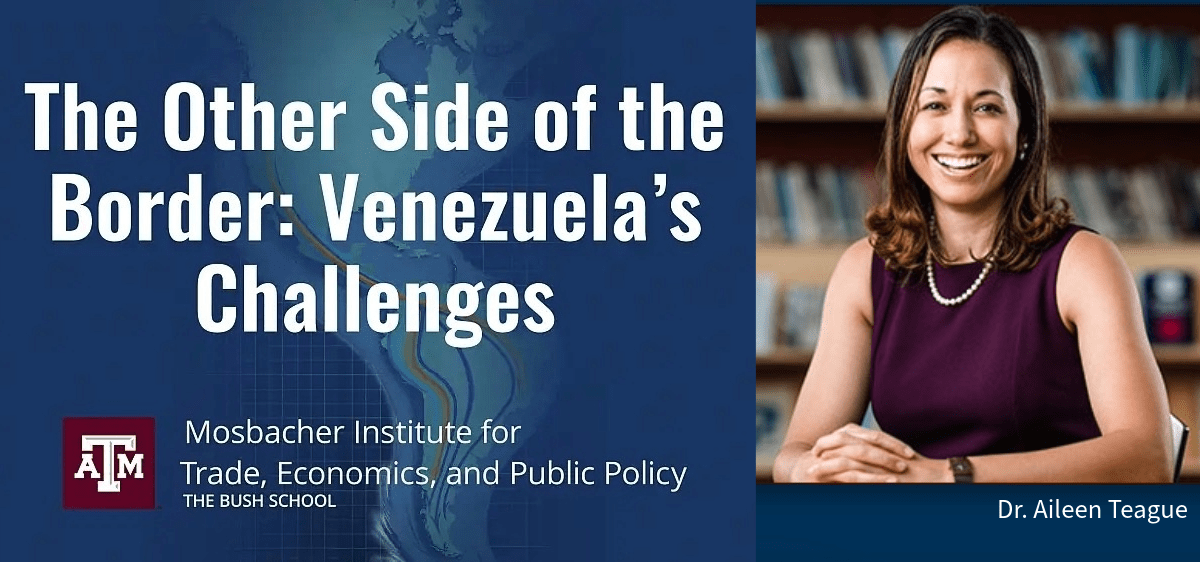
• The latest “The Other Side of the Border” event, on April 3, will feature experts unpacking the ongoing controversies tying Venezuela to the United States
• The talk is titled “A Country in Crisis? Perspective on Venezuela’s Humanitarian, Political, and Economic Challenges” and is part of an ongoing lecture series by The Bush School of Government and Public Service
The United States and Venezuela have a fraught history, rife with disagreements about oil and crime and even whether Venezuela’s president should be considered a legitimate part of the country’s government. On April 3, from 6 p.m. to 7:15 p.m., three experts will unpack and explore those issues in the latest Bush School speaker series on Latin America. Anyone can attend, in person or through a live stream.
“What’s happening in Venezuela reflects some of the most challenging domestic and foreign policy issues that the United States if facing right now,” said moderator Aileen Teague, Ph.D., a Bush School professor and expert on U.S. relations with Latin America.
Immigration tops the list of issues. Venezuela, which has produced thousands of migrants in recent years, recently stopped accepting U.S. deportees as part of an ongoing dispute with the Trump administration.
Relatedly, Venezuelan crime has fueled waves of ongoing migration. The Trump administration recently declared Venezuela’s deadliest gang, Tren de Aragua, a foreign terrorist organization. The Department of Homeland Security has subsequently announced arrests of suspected Tren de Aragua members in the United States under the Laken Riley Act, which President Trump signed into law earlier this year. The FBI is also reportedly expanding its investigations into the Cartel de Los Soles (“Cartel of the Suns”).
These issues have been exacerbated by leadership failures in Venezuela. President Nicolas Maduro declared himself the victor in last summer’s election despite a worldwide outcry over what many see as blatant fraud. His turn toward totalitarianism has the support of authoritarian powers such as Russia and China. The United States now considers only the Venezuelan National Assembly – and not Maduro – the country’s only legitimate branch of government.
Venezuela’s challenges with governance undermine its ability to use its most profitable resource: oil. The country stopped taking deportees because President Trump ordered Chevron out of that country. Gasoline prices could rise around the world as a result.
Joining Teague in discussing these and other issues will be two international experts: Carrie Filipetti, formerly the U.S. Department of State’s deputy special representative for Venezuela (among other government posts) and now executive director of the Vandenberg Coalition; and Alexandra Winkler, a former deputy mayor of a municipality within Venezuela’s capital city of Caracas, now senior associate for America’s Program at the Center for Strategic and International Studies.
The lecture is part of the Mosbacher Institute for Trade, Economics, and Public Policy’s Borders and Migration Program. The Mosbacher Institute and Scowcroft Institute of International Affairs are cohosting the event.
